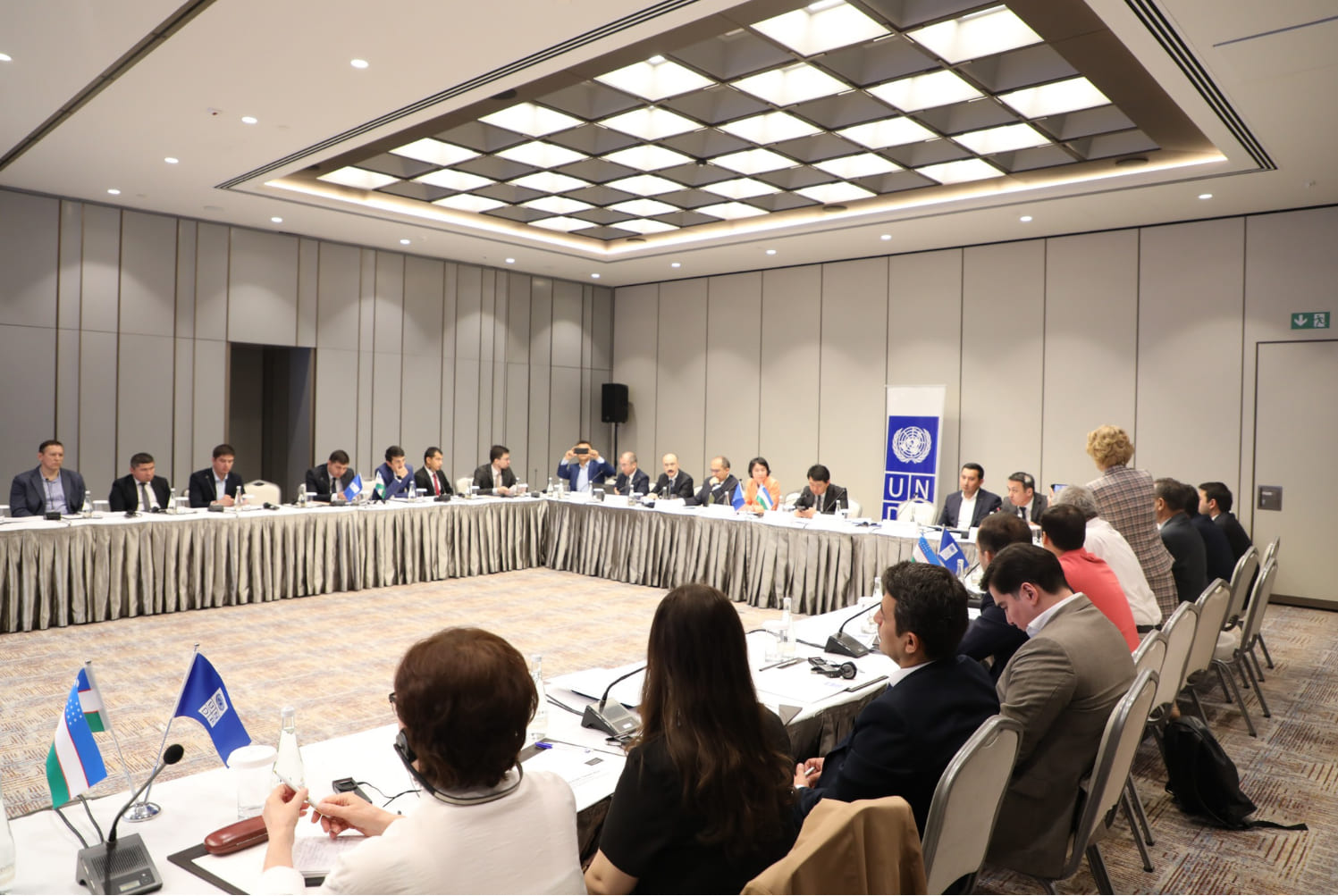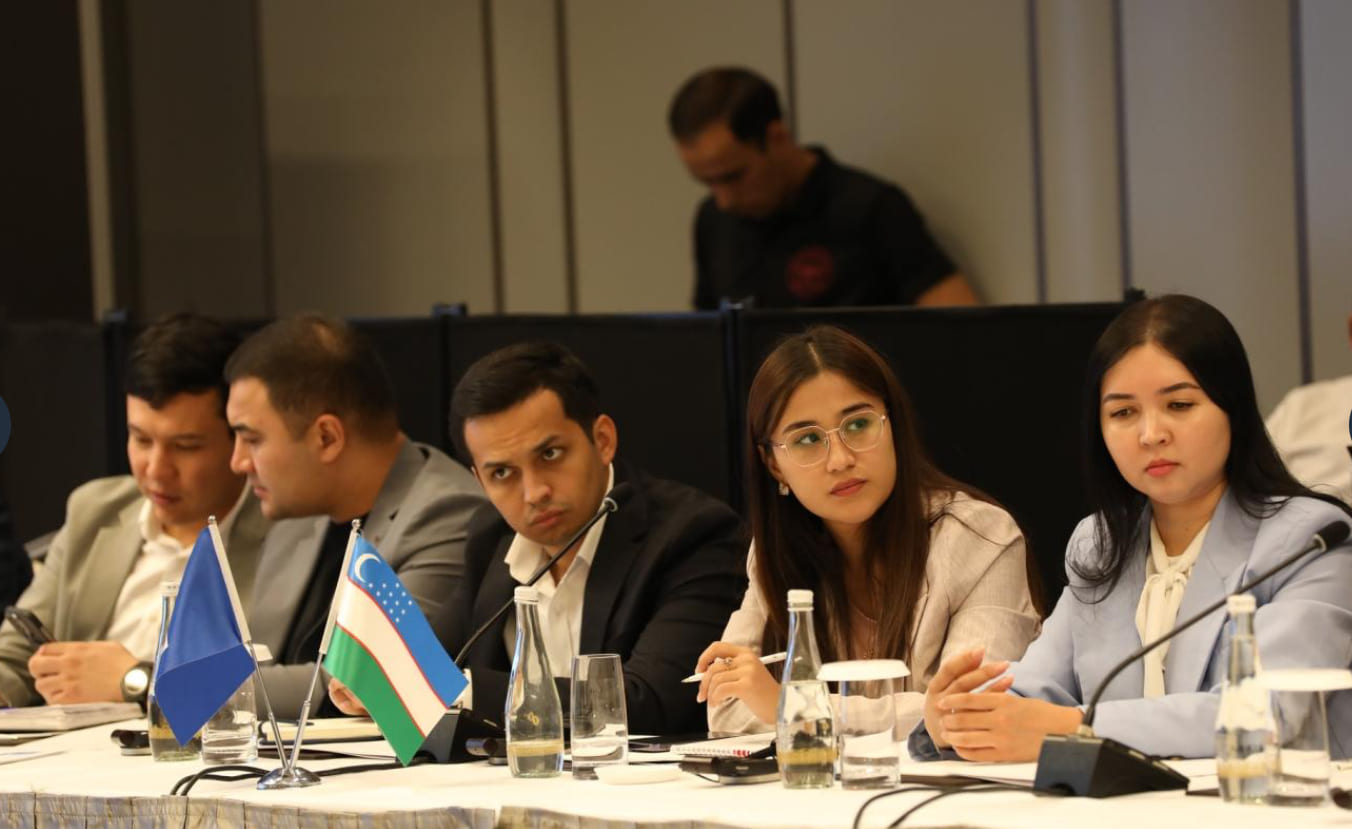The United Nations Development Programme (UNDP), in collaboration with the National Agency of Perspective Projects (NAPP) under the President’s Administration and the Islamic Development Bank (IsDB), held a round table in Tashkent focused on the introduction of Islamic Finance in Uzbekistan. The event, “Introduction of Islamic Finance in Uzbekistan: Opportunities and Challenges,” aimed to facilitate discussions among key government agencies on the draft Law “On Capital Market in Uzbekistan.”

The round table brought together over 30 representatives from various government entities, including the Ministry of Economy and Finance, Central Bank, Ministry of Investment, Industry and Trade, Ministry of Justice, Committee of Religious Affairs, and the Tax Committee. Attendees also included experts from the Chamber of Commerce and Industry, prominent think tanks, and other stakeholders.
In recent years, the government of Uzbekistan has shown a strong interest in introducing Islamic finance as part of its broader economic reforms. This commitment has been reflected in government resolutions and national development strategies. A draft law on the capital market, developed by NAPP, includes a dedicated chapter on Islamic Securities, known as "Sukuk." Meanwhile, the Ministry of Investment, Industry and Trade, along with the Central Bank, are working with IsDB to develop a legislative framework for Islamic banking in Uzbekistan. These initiatives are currently under review by the government.
Islamic finance instruments, particularly Sukuk, have emerged as promising tools for attracting development financing. According to Fitch Ratings, the total global outstanding Sukuk market exceeded $867bn by the end of the first quarter of 2024. Sukuk instruments are increasingly recognized worldwide, including in non-Muslim countries.
One area of particular interest is the introduction of "Green Sukuk," a financing instrument used for environmentally sustainable projects. Green Sukuk supports initiatives such as renewable energy development, energy efficiency technologies, and solid waste management. This dual-purpose tool not only helps fund sustainable development goals (SDGs) but also supports climate change action.

The primary objective of the round table was to present the draft law on the capital market, specifically the sections relating to Islamic finance instruments, and to discuss proposed legislative changes that would enable the introduction of Sukuk, Green Sukuk, and Islamic banking in Uzbekistan. Participants engaged in discussions on the opportunities and challenges surrounding these financial instruments.
Experts from NAPP, UNDP, and the Ministry of Investment, Industry and Trade provided updates on recent developments and facilitated discussions. Key topics included raising awareness about Islamic finance and enhancing the capacity of government agencies, the private sector, and the public. Special attention was given to taxation issues that could potentially affect the competitiveness of Islamic finance instruments.
The round table allowed stakeholders to exchange views and provide recommendations on creating a supportive legal and regulatory framework for Islamic finance in Uzbekistan.
This event is part of UNDP’s joint initiative with NAPP and IsDB on “Developing the Enabling Environment for Green Sukuk in Uzbekistan,” launched in 2021 to establish the necessary legislative, institutional, and regulatory frameworks, as well as to strengthen government capacities in Islamic finance.
Follow Daryo's official Instagram and Twitter pages to keep current on world news.
Comments (0)